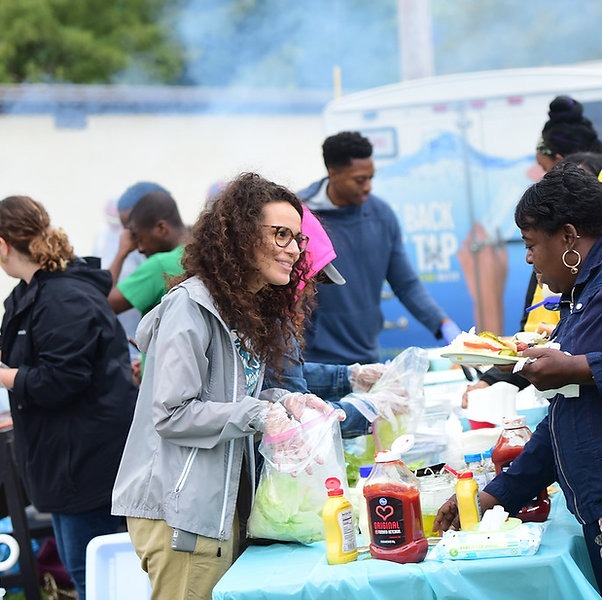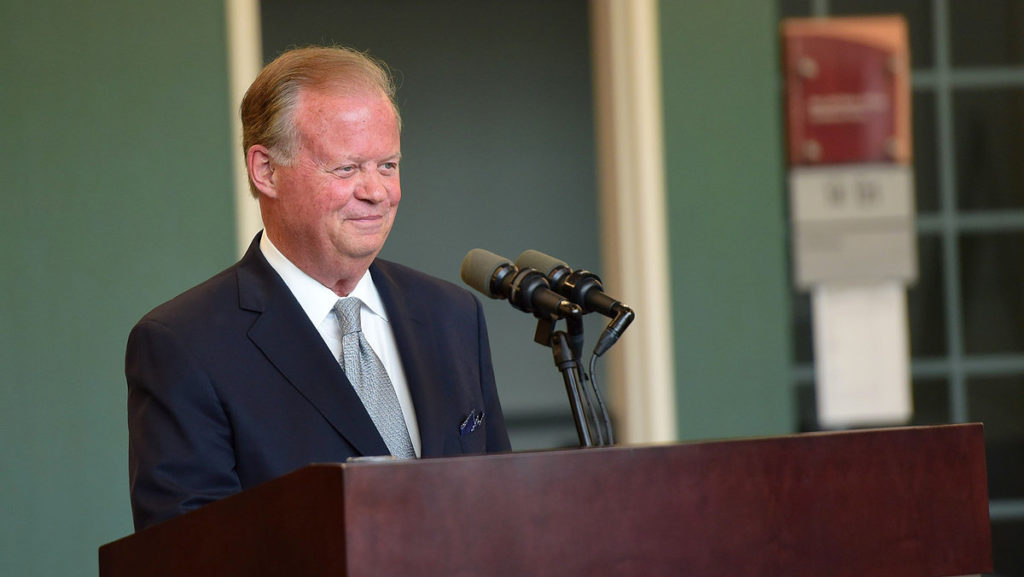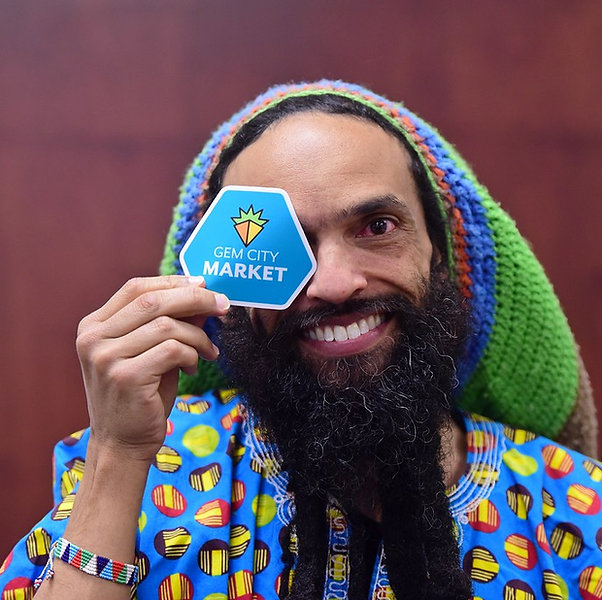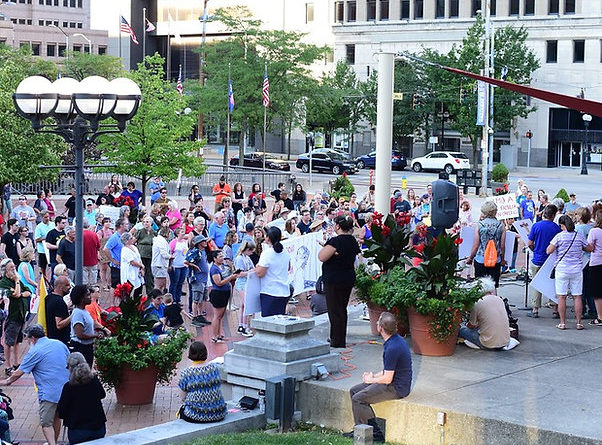Hall Hunger Initiative partners with UD to end hunger in Montgomery County
HHI’s largest support project is the Gem City Market, a community co-op grocery store located at 324 Salem Avenue.
Tori Miller | Staff Writer
The Hall Hunger Initiative, a nonprofit organization working to address the issue of hunger in the greater Dayton area, has moved into the Fitz Center at UD.
After nearly 40 years of researching and field experience, Tony Hall, a U.S. Congressman, three time Nobel Peace Prize nominee and Ambassador to the United Nations for Food and Agriculture, started the Hall Hunger Initiative back in 2015.
“We want to be able to say, ‘no one will go hungry,’” Hall said as the major goal of his initiative for Montgomery County.

Hall was heavily inspired by two events in his lifetime, and these two events set the stage for his passion, precedence and impact on equitable food for people in Dayton and all over the United States. According to Hall, the first instance happened in 1984, a day where Hall witnessed 25 Ethiopian children die of hunger while he was studying in the field.
The second event happened over five years ago when Hall picked up his daily newspaper that proclaimed Dayton as the “fourth hungriest city” in America. Alarmed by these two shocking revelations, Hall decided to no longer sit by and watch as hunger devoured people’s livelihoods.
Recently, Dayton Civic Scholars invited Tony Hall as a guest speaker to talk about his lifetime work, his passion for what he does and all he has accomplished.
According to Rachel Carr, the director of the Dayton Civic Scholars program, “Ambassador Hall focused on vocation and calling in his speech. In addition to talking about hunger, he encouraged students to dedicate themselves to work for what they feel called to. Ambassador Hall’s comments pushed students to imagine big things, from changing the global food system to running for office themselves.”
According to Hall, about 90,000 people in Montgomery County suffer from food insecurity, and nearly 60,000 of these people are children. Being food insecure encompasses a variety of different things: not knowing when your next meal will be, going to bed hungry at night and even not having money in the budget to buy essential groceries.
The main goals of the Hall Hunger Initiative are to address issues related to hunger, bring awareness to the greater Dayton community, help food-focused organizations raise money and to feed their patrons and to work on microgrants for these organizations.
Partnering with the University of Dayton allows the Hall Hunger Initiative to provide educational experience to young, bright, aspiring students.
“Our work needs to carry on,” implores Hall. “We need to get the young people started.”

Hall demonstrates three different reasons why people of all age groups should care about this initiative and what the future implications entail if there’s a lack of support. Food insecurity is: (1) a moral issue and helping people through this is simply the right thing to do; (2) a spiritual issue because God encouraged his followers to help the poor and those in need; and (3) a security issue because if people do not have necessities to live, in this case food, danger and hopelessness can arise, thus creating a space for hateful ideas to grow.
Hall highlights the importance of collective efficacy to foster care and growth in the community, as well as inspire people of all different backgrounds to advocate for change.
The Hall Hunger Initiative has two offices located in Fitz Center as part of their partnership with the University of Dayton. Darius Beckham, a UD alumni and current project manager of the Hall Hunger Initiative, and Mark Willis, Hall Hunger Initiative team member, work on connecting different organizations to funding, putting together proposals, developing innovative programs and solutions to end hunger in Dayton and working directly with community partners.
These two members have also run a racial wealth gap simulation on campus to engage students in the context of food and money inequality, as well as taking on a student intern to assist in their project endeavors.
According to Nancy Mchugh, the new director of Fitz Center, “Both the Hall Hunger Initiative and the Fitz Center focus on developing partnerships and relationships that can work to change systems of oppression. Together we prioritize equitable access to resources and needs, such as food, in Greater Dayton.”

Mchugh also discussed her hopes of students, faculty and community members working together to create community-driven sustainable projects that create solutions, further impacting food injustice throughout Dayton.
Carr said, “Ambassador Hall’s life and initiative demonstrates what a true commitment to Dayton looks like. Dayton Civic Scholars learn what leadership in community means from leaders in our region. Tony Hall has made huge impacts on the local, state, national and international levels, unlike anyone else in Dayton.”
Some steps have already been taken to stop hunger in Dayton:
- The institution of the Gem City Market as a means for getting rid of the largest food desert this side of the Mississippi
- The Montgomery County Food Equity Coalition has been working with local growers and using local gardens as a means to slow malnutrition
- Miami Valley Meals, a group of chefs working together after losing their jobs due to the COVID-19 pandemic, comes together to cook and deliver meals to people in need
For more information on any of these groups, visit https://www.hallhunger.org/, https://www.mcohio.org/residents/mc_food_policy/food_equity_coalition.php and https://miamivalleymeals.org/.
For more arts & entertainment news, like Flyer News on Facebook and follow us on Twitter (@FlyerNews) and Instagram (@flyernews).

